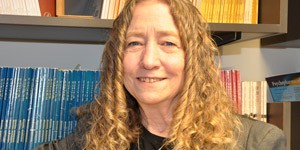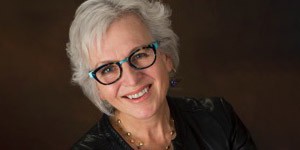By Yuval (Tuby) Zolotov

Yuval (Tuby) Zolotov is a medical cannabis researcher and a PhD student at the School of Public Health at the University of Haifa. He completed his Master in Health Administration at Bar Ilan University where he investigated adherence to medical cannabis among licensed patients in Israel. Before joining academia in 2012, Yuval was a licensed Patient Instructor and has been involved with the local industry since its inception. While working on his thesis – Medical Cannabis Recommendation: Understanding and Predicting Physicians’ Behavior – Yuval is also involved in various research projects.
Meet the Experts is a series of interviews conducted by experts from the field of Cannabis to world leaders in research and clinical practice of Cannabis as medicine.

Dr Bareket Scheiff Keren is an Israeli physician who has been pain specialist for nearly four decades. She has been a pioneer in the evolvement of medical cannabis in Israel.
In addition to being a full-time practicing physician, she is actively involved in the professional and public debate, in both national and international levels, while she advocates for more access of patients to medical cannabis.
Yuval Zolotov: Dr. Scheiff-Keren, can you please tell us how your experience with medical cannabis started?
Bareket Scheiff-Keren: It all started after I had already been a doctor for many years. I have been practising medicine for 38 years now, and my area of specialty is pain relief. Around 20 years ago a patient of mine – who was really suffering after a major car accident – told me that he was using cannabis. And he told me that it was helping relieve his pain much more than all the medications I had prescribed. So I told him to keep using it. But he was very concerned about the fact that this use was de facto making him a criminal. I did not think I could do anything about it, but later I learned that the Israeli Ministry of Health has some sort of procedure to license patients to use medical cannabis. Things worked very differently compared to the current situation; very few patients were licensed, and almost nobody knew about it.
Yuval Zolotov: And how did it develop after that first patient?
Bareket Scheiff-Keren: I had a few patients at that time who were suffering very severely despite various treatments that I had tried on them. So I thought it would be worthwhile to try cannabis. And I noticed that many of those patients not only felt better with their pain, they also told me that in general their life was really improving. Some were going back to work, some started going to university, and they were functioning again in society. As a physician, this is a very important outcome. Together with my patients I learned that cannabis as a treatment for pain is rehabilitative, and in this sense it is actually curative. In general, a growing percentage of the population suffers from chronic pain, and we also know that the population is getting older. So I think we must try to help people to live their lives and remain functional despite their pain. Over the years since then, I estimate that I have treated more than 5,000 patients with medical cannabis.
Yuval Zolotov: Can you describe how cannabis is currently integrated in your clinic?
Bareket Scheiff-Keren: Since I am one of the very few physicians with such a positive point of view on medical cannabis, patients usually come to my clinic after having already seen several physicians who refused to have anything to do with cannabis. My clinic is overwhelmed, and the waiting lists are crazy. So it has turned out that most of my clinic time is devoted to patients who are either using or considering using medical cannabis. According to the Ministry of Health, I have more patients who use medical cannabis than any other physician in Israel – currently 4,400 of the 27,000 licensed medical cannabis users in Israel are my patients. Unfortunately, I have to spend a great deal of my time in administrative paperwork, and as a physician I really don't like it. I prefer to treat patients instead. According to the Israeli regulations on medical cannabis, physicians have to jump through so many hoops, and this is probably one of the reasons that other physicians don't want to become involved.
Yuval Zolotov: Can you please explain what you mean?
Bareket Scheiff-Keren: Physicians in Israel do not license patients directly as in the US. Instead, licenses are issued by the Ministry of Health upon approval of a medical recommendation. Thus, when I treat a patient and I think that medical cannabis might help him, I need to sign a designated form which has to be filled in online, then printed out and faxed. Next, a family physician who serves as an administrator in the Ministry and whose education and qualifications are obscure reviews my recommendation and either approves it or not. This physician hasn't seen my patient, but nevertheless I get very strange rejections from the Ministry. As physicians, we are allowed to prescribe highly toxic medication if we think a patient needs it, and nobody is looking over our shoulder. But with cannabis it is different, and this whole process takes lots of time and energy. Most physicians don't want to be in this position. But I keep fighting. It really is a fight. The only reason that I keep fighting is to help my patients. After so many years of experience, I know that medical cannabis has the potential to help them, probably better than any other pain medication.
Yuval Zolotov: Can you please elaborate on this standpoint of yours?
Bareket Scheiff-Keren: Sure. Most of the time doctors cannot cure patients, and our purpose should be to try and help them as much as we can. Being a physician, I was obviously trained according to the biomedical model; but I feel that treating people who have pain syndromes requires a broader perspective. The definition of pain, as set forth by the International Association for the Study of Pain, is the subjective experience of a patient, which is obviously something that cannot be measured. Over the years I have witnessed different trends in pain medicine, but we still don't have the right answers for so many of our patients. And in some cases, patients actually get worse from going through procedures and taking medication for long periods. In addition, many patients in pain suffer from other symptoms as well, such as depression or sleeping disorders. Pain affects patients on many different levels. As a pain specialist, I see so many cases which are really extreme; people after different kinds of accidents or with severe medical problems. I will spare you the details, but some of the cases I see are unimaginable. The treatment of those patients is very complex. In many cases, the patients don't get better with conventional medication, so cannabis should be considered as an option. Why not? Moreover, I believe that cannabis can help patients with more than just their pain. It gives patients a holistic solution to many of their problems. We are used to prescribing medication for one certain indication, and sometimes it damages the patient in other medical aspects – sexual functioning is one important example. But with cannabis, I give it to the patients for pain relief, and many times their other problems get better as well. And even more importantly, it is very safe, with almost no adverse effects. Some of the conventional medications for pain are much more toxic and dangerous.
Yuval Zolotov: You describe many advantages. Why is it then, in your opinion, that medical cannabis is not used more by clinicians?
Bareket Scheiff-Keren: I ask myself this question constantly. In some way we are victims of previous societies, because we know that cannabis was a viable treatment at times in history. Medicine has become very conservative in nature, and one thing which is very typical of physicians is that they think they know better. They believe that their knowledge is superior. So when a patient tells his physician that cannabis is helping him, the physician acts doubtful and suspicious. Fortunately, patients do believe their physicians, but with a pinch of salt. And although cannabis became illegal at a certain point, people have never stopped using it. And some wisdom about the therapeutic properties of cannabis has thus been preserved. As I mentioned earlier, I first learned about medical cannabis from patients, not in medical school. Physicians need to understand their patients, but also vice versa. Although cannabis is so contentious, I still encourage patients to find a way to communicate with their physician if they are using, or considering using, medical cannabis. I hope that this interview will be helpful for some of them.
Yuval Zolotov: What are your expectations and hopes about the future of cannabis for medical purposes?
Bareket Scheiff-Keren: In my opinion, cannabis should be free for people to use for any purpose. From the medical prospective, I hope very much for more quality control of the products that patients use. At the moment the standards are not clear enough and the regulations are vague, and I believe there is still much to do. Additionally, we need to spread our knowledge among physicians and other healthcare providers, and this is still a big challenge. When I was in medical school, we didn't learn anything about medical cannabis, but eventually it turned out to be such a viable tool in my clinic. It does not make sense that nothing has changed after so many years, and medical students today still learn almost nothing about the endocannabinoid system and about clinical applications of cannabis. My wish is to witness greater endorsement of medical cannabis by physicians and by the medical establishment. Until that happens, for the sake of my patients, I take it as a personal mission to spread the message of medical cannabis to my colleagues and to the public, in different forums.
Yuval Zolotov: Thank you very much for granting us this interview.


